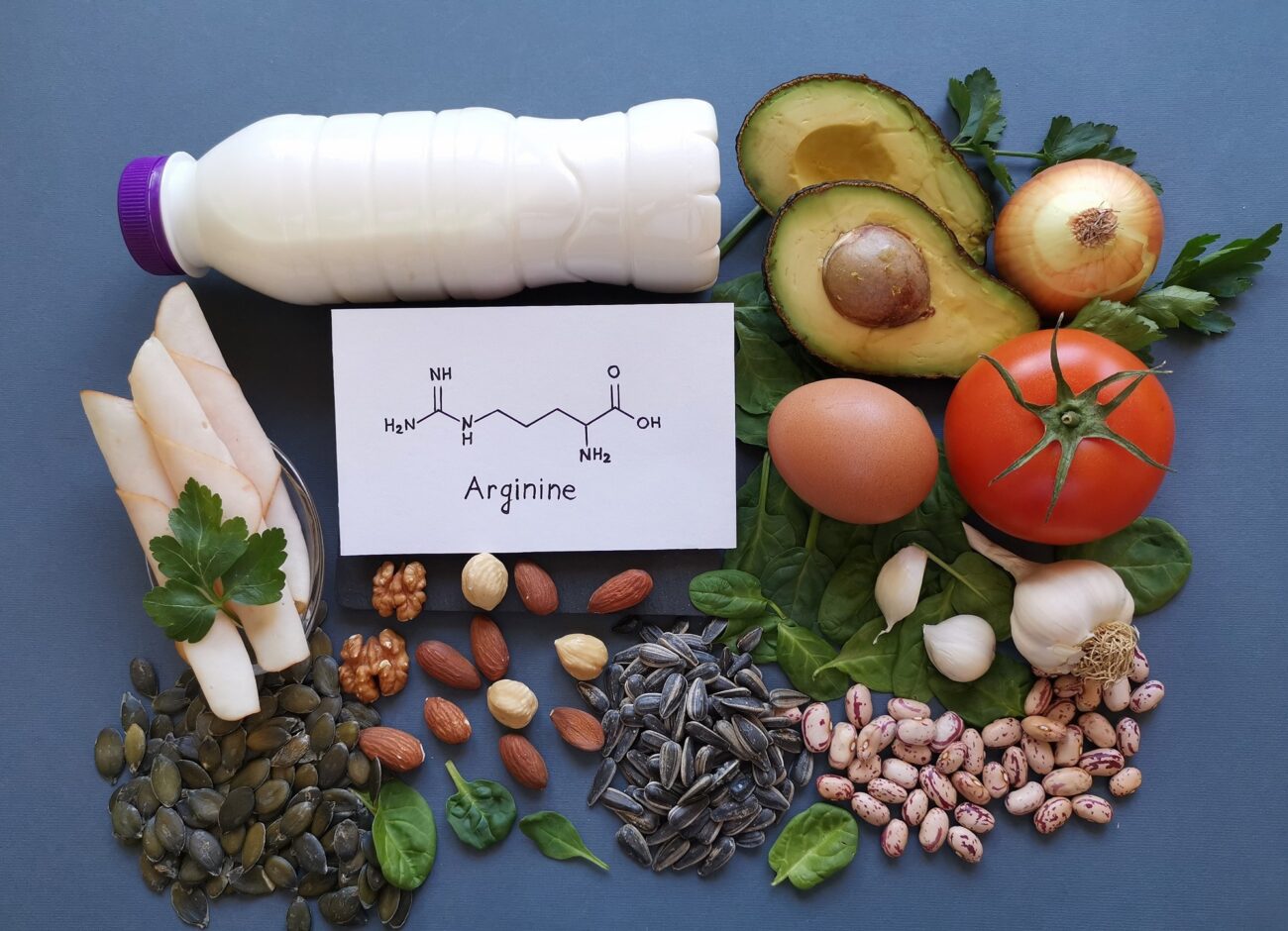Arginine, also known as L-arginine, is a semi-essential amino acid that plays a crucial role in various bodily functions. While the body can produce arginine on its own, certain conditions—such as illness, stress, or aging—may increase the need for dietary or supplemental sources. From supporting heart health to enhancing exercise performance, arginine offers a wide range of benefits.
In this blog post, we’ll explore what arginine is, how it works, and the many ways it can benefit your health.
What is Arginine?
Arginine is an amino acid, one of the building blocks of protein. It’s considered “semi-essential” because, although the body can synthesize it, there are times when dietary intake becomes necessary. Arginine is found in protein-rich foods like meat, poultry, fish, dairy, nuts, and legumes. It’s also available as a dietary supplement in powder, capsule, or liquid form.
Arginine is a precursor to nitric oxide (NO), a molecule that helps relax blood vessels and improve blood flow. This unique property makes arginine particularly important for cardiovascular health and overall well-being.
How Does Arginine Work?
Arginine’s primary role is to produce nitric oxide, which helps widen blood vessels (vasodilation) and improve circulation. This process supports oxygen and nutrient delivery to tissues and organs, enhancing their function. Additionally, arginine is involved in:
- Protein synthesis
- Wound healing
- Immune function
- Hormone production
- Detoxification (by aiding in the removal of ammonia from the body)
7 Benefits of Arginine
1. Supports Heart Health
Arginine’s ability to boost nitric oxide production helps relax blood vessels, improve blood flow, and lower blood pressure. This can reduce the risk of cardiovascular diseases like atherosclerosis, heart attacks, and strokes.
2. Enhances Exercise Performance
By improving blood flow and oxygen delivery to muscles, arginine can enhance exercise performance and reduce fatigue. It may also help with muscle recovery and reduce soreness after workouts.
3. Boosts Immune Function
Arginine plays a key role in immune response by supporting the production and activity of white blood cells. It also aids in the healing of wounds and recovery from illness or surgery.
4. Improves Erectile Function
Arginine is often used to support erectile function in men. By increasing nitric oxide levels, it helps improve blood flow to the genital area, which can enhance sexual performance and treat mild erectile dysfunction.
5. Promotes Muscle Growth
As a building block of protein, arginine supports muscle repair and growth. It’s particularly popular among athletes and bodybuilders for its potential to enhance muscle mass and strength.
6. Supports Kidney Function
Arginine helps the kidneys remove waste products from the body by aiding in the production of urea. It may also improve kidney function in people with certain conditions, such as chronic kidney disease.
7. Aids in Hormone Regulation
Arginine stimulates the release of growth hormone, insulin, and other important hormones. This can support overall metabolic health, muscle growth, and energy levels.
Food Sources of Arginine
If you’re looking to increase your arginine intake naturally, here are some excellent food sources:
- Meat: Turkey, chicken, pork, and beef
- Seafood: Tuna, salmon, shrimp, and lobster
- Dairy: Milk, yogurt, and cheese
- Nuts and Seeds: Almonds, walnuts, peanuts, sunflower seeds, and pumpkin seeds
- Legumes: Chickpeas, lentils, soybeans, and peanuts
- Whole Grains: Oats, quinoa, and brown rice
How to Use Arginine Supplements
Arginine supplements are available in various forms, including capsules, powders, and liquids. The recommended dosage varies depending on the intended use, but typical doses range from 3 to 6 grams per day. Here are some tips for using arginine supplements:
- For Exercise Performance: Take arginine 30–60 minutes before workouts.
- For Heart Health: Follow the dosage recommended by your healthcare provider.
- For Erectile Function: Take arginine daily, ideally on an empty stomach.
Note: Always consult a healthcare professional before starting any new supplement, especially if you have underlying health conditions or are taking medications.
Potential Side Effects and Precautions
While arginine is generally safe for most people, it may cause side effects in some cases, including:
- Digestive Issues: Nausea, diarrhea, or stomach cramps.
- Allergic Reactions: Rarely, some people may experience itching or swelling.
- Low Blood Pressure: Arginine can lower blood pressure, which may be problematic for individuals with already low blood pressure.
- Interactions with Medications: Arginine may interact with blood pressure medications, nitrates, or blood thinners.
People with certain conditions, such as herpes or kidney disease, should avoid arginine supplements unless advised by a healthcare provider.

Arginine is a versatile and powerful amino acid that offers a wide range of health benefits, from supporting heart health and improving exercise performance to boosting immune function and enhancing muscle growth. Whether you get it from food or supplements, arginine can be a valuable addition to your health regimen. However, it’s important to use it wisely and consult a healthcare professional if you have any concerns.
Have you tried arginine supplements or increased your intake through diet? Share your experiences and tips in the comments below!
Disclaimer: This blog post is for informational purposes only and is not intended to replace professional medical advice. Always consult with a healthcare provider before starting any new supplement or making significant changes to your diet.

